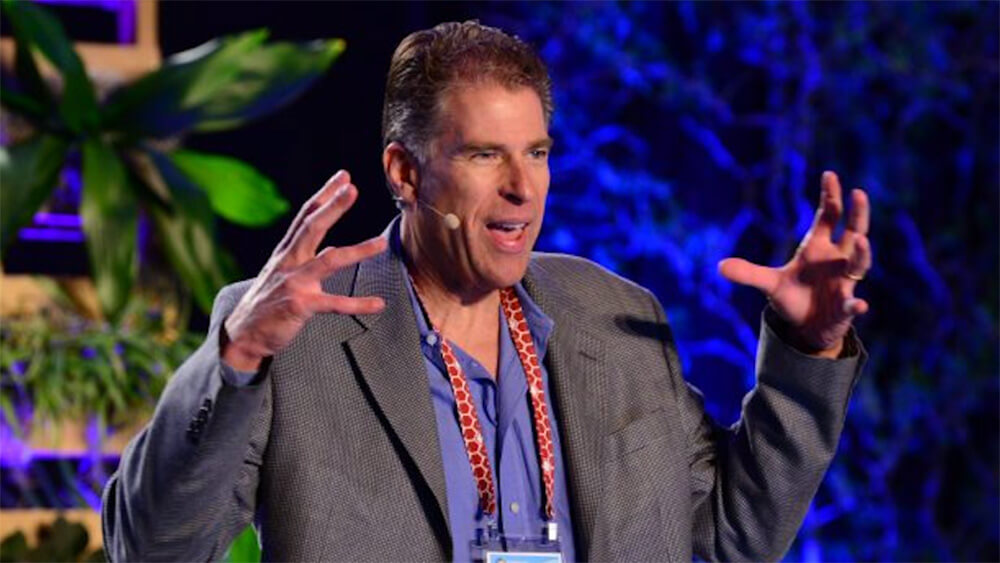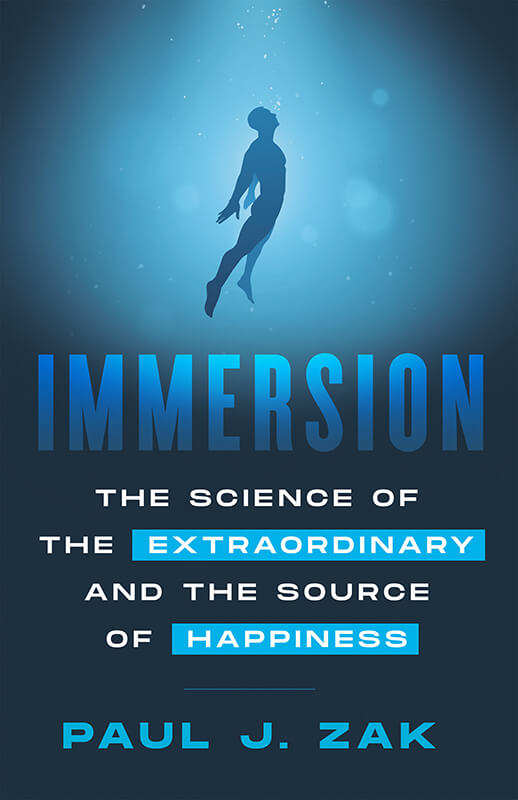
“To get people to really have an amazing experience, to remember it, to act on it, and to create value from that experience, you’ve got to have an emotional component,” said neuroscientist Paul Zak.
The phrase “immersive experience” is everywhere — for good reason. “When the brain is immersed in an experience, something extraordinary happens,” Paul Zak, a behavioral neuroscientist and professor of economics, psychology, and management at Claremont Graduate University in Southern California, writes in his book, Immersion: The Science of the Extraordinary and the Source of Happiness. “People remember them, share them, and they influence behavior.”
For two decades, Zak has conducted research to find the answers to such questions as how stories change our brains, why we trust one another, and what makes some experiences transformative. One of the takeaways from his research is “that to get people to really have an amazing experience, to remember it, to act on it, and to create value from that experience, you’ve got to have an emotional component,” Zak told Convene. “There’s got to be a reason for my brain to kick in.” Immersion is a gauge of “how much the brain values an experience — and when an experience is valued, you remember it and you act.”
 Zak, a pioneer in integrating neuroscience and economics, has worked with clients ranging from the U.S. Department of Defense, to television and movie production companies, to life insurance companies, to understand how to influence behavior. He’s created a formula centered on immersion that he calls a “neurologically informed” way to persuade people to take action. He calls it SIRTA, an acronym for Staging, Immersion, Relevance, Target, and Action. Here’s how the components of the formula work together:
Zak, a pioneer in integrating neuroscience and economics, has worked with clients ranging from the U.S. Department of Defense, to television and movie production companies, to life insurance companies, to understand how to influence behavior. He’s created a formula centered on immersion that he calls a “neurologically informed” way to persuade people to take action. He calls it SIRTA, an acronym for Staging, Immersion, Relevance, Target, and Action. Here’s how the components of the formula work together:
Staging — This means making sure that participants feel psychologically safe and physically comfortable. Our brains use a lot of energy, and if participants are anxious, stressed, or distracted, they don’t have the bandwidth to stay present, Zak writes. For event planners, that means attending to physical needs, like making sure there is comfortable seating and enough coffee and snacks, as well as psychological ones, such as creating spaces where participants feel welcomed and like they belong.
Immersion — The most effective way to immerse people, according to Zak, is one that humans have used for thousands of years — storytelling. The classic narrative arc is a really effective way to keep people immersed, he said. Stories with “a human scale, with real emotions, and a conflict amazing experience, work really, really well.” Zak has tested whether having stories told by celebrities or accompanied by great music affects immersion, but it makes little difference, he writes in his book. “A narrative with authentic characters is really all it takes to be immersed.”
Relevance — Even if an experience is enjoyable to participants, if it’s not relevant to them, they aren’t likely be immersed in it, according to Zak. When you encounter something relevant, you allocate more brain processing power — and are more immersed — in the experience. “The brain evaluates the relevance of experiences and immersion responds accordingly,” he writes. “It’s a call for what [experience economy expert] Joseph Pine calls ‘mass customization,’” Zak told Jay Tinkler, the host of The Remarkable Project podcast, when the neuroscientist was a guest on the show. “I really want to know a lot about that particular customer or that particular segment, so I can communicate or create an experience that’s most effective for that group.”
Target — Identify the people whose levels of immersion are “through the roof.” These “immersion outliers,” as Zak calls them, tend to score high on two personality traits, empathy and agreeableness. Failing to engage them “is inexcusable because superfans are so easy to find.” They are the ones, he writes, spreading the word about the experience and who consider your brand to be like family.
Action — “Once you’ve immersed people, once you’ve captured them emotionally, they want to do something, so give them something to do,” Zak told Tinkler. “And the more immersive that experience is for a person, the more likely they are to take an action.”
The SIRTA formula was developed to influence behavior in multiple contexts, but there are a couple of ways in which event organizers have an edge. “The experience economy is most valuable,” Zak wrote in Immersion, “when one has an actual experience.” And “because immersion captures social value, it is contagious.”
Barbara Palmer is deputy editor of Convene.
